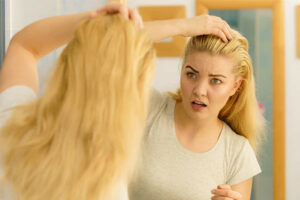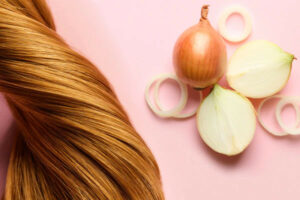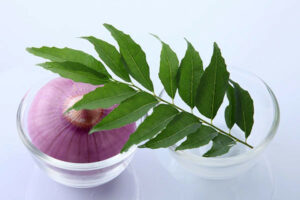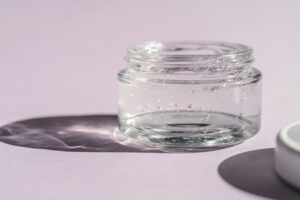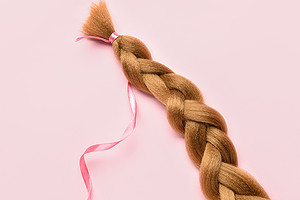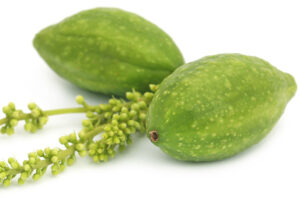Is your hair weak, thin, and falling easily? It’s time to care for your hair follicles because they play a prominent part in hair growth.
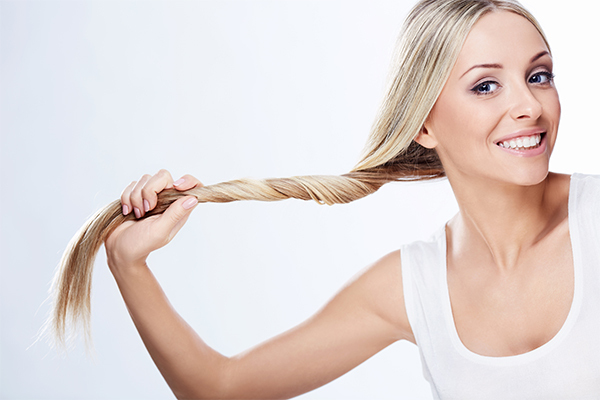
The hair follicle is that white, soft portion from where the hair grows. It has a tunnel-like structure and is more delicate than the skin to touch.
The part below the skin is called the hair bulb, the living portion of the follicle responsible for hair growth. The hair shaft is the portion responsible for the hair’s strength. (1)
Article Contents
Tips to Increase Hair Follicle Strength
Here are some tips that can help increase the strength of hair follicles.
1. Increase your iron intake
Hair follicles need a rich supply of oxygen from the iron in your red blood cells to promote good hair growth.
Even though the iron level in your blood may be considered normal, you can still have low ferritin levels. Ferritin is the iron reserve in your body that provides this crucial mineral whenever required.
Low ferritin levels are linked to slowing or halting hair growth and hair fall. (2) Some examples of foods that are rich in iron are tofu, green leafy vegetables, and dried fruits.
2. Have a protein-rich diet

The basic structure of the hair is made of protein – keratin to be precise. A diet lacking protein manifests in the form of weak hair and slow hair growth.
Don’t fret because, even if you are vegan, you can still get enough protein by consuming legumes such as beans, peas, and lentils, seeds, dried fruit, soybean tofu, quinoa, and whole wheat, among others. (2)
3. Increase your vitamin intake
Vitamins are essential nutrients that keep the hair follicles in top condition.
For example, a diet rich in vitamin A will provide hydration to your scalp and aid in sebum production. It also helps transport oxygen from your blood to your hair follicles, resulting in healthy and strong hair.
Vitamin E contains antioxidant properties that relieve the scalp from oxidative stress caused by free radicals. It also protects the hair from harmful UV radiation by sealing the natural moisture of the scalp and hair strands. Vitamin E also aids in the transport of oxygen in the blood, thus strengthening your follicles.
Vitamin B7, or biotin, helps in the metabolism of proteins, fats, and carbohydrates and breaks down proteins into amino acids that are necessary for hair follicle strengthening. (3)
4. Use natural shampoos
If you notice your hair feeling dry and prone to frizz after a hair wash, the chemicals in the shampoo may have eliminated the sebum that covers the hair. It causes the hair shaft to lose moisture, become statically charged, and be prone to friction.
Many evil ingredients are lurking in synthetic shampoos, such as sodium laureth sulfate and sodium lauryl sulfate, which are detergents used to clean the scalp. Sodium lauryl sulfate, used exclusively in shampoos several years ago, was found to be irritating and damaging to the hair follicle compared to sodium laureth sulfate.
Choose natural shampoos that do not contain parabens, sulfates, silicones, or mineral oil. Go for plant-based ones that are mild and suitable for daily use. (4)
5. Limit the use of hairstyling tools

Women love to flaunt tight hairstyles such as high ponies, braids, and buns, which put a lot of pressure on the hair follicles and can cause permanent hair loss.
Also, the use of hair-styling products and tools such as straighteners, curlers, and hair colors, can strip essential moisture from the hair, making it dry, frizzy, and prone to hair fall. (5)
6. Massage your scalp
When blood circulation is good in the body, especially to the scalp, the hair follicles thrive as increased blood flow helps provide them with nutrition and enhance their strength.
In addition, a scalp massage helps to warm the skin and opens up blood vessels, thereby increasing blood flow to the scalp with improved nutrient intake. When the hair follicles get adequate nutrition, they will produce good hair growth, and the hair will grow longer and more robust.
Regular scalp massages help the head relax and reduce stress as well. Reduced levels of stress hormones allow the body to function with increased efficiency, which, in turn, enhances the ability of the hair follicles to grow longer and thicker hair.
Massage your scalp and hair with natural oils to soften and nourish them with nutrients.
Moreover, oiling the hair with coconut oil, which has antimicrobial activity, helps eliminate dandruff caused by the fungus Malassezia. Bacteria and fungus on the scalp can affect the scalp skin and the hair follicle, causing hair fall.
Massage your hair with oils to prevent your hair from becoming brittle, splitting, and breaking. (6)
7. Apply herbal hair masks
Herbal hair masks from natural plant-based ingredients are ideal for nourishing and moisturizing the hair follicles. They are especially beneficial for dry or damaged hair.
Here is a hair mask you can make at home:
- Remove the gel from one aloe vera leaf and store it in a bowl.
- Take 10–15 curry leaves, wash them properly and add them to the same bowl.
- Add 2 teaspoons of methi seeds to the bowl and grind them in a blender to form a paste.
- Add 2 teaspoons of coconut oil and ½ teaspoon of castor oil in a separate bowl.
- Add the aloe vera paste to this bowl and mix well with the oils to form a paste.
- Apply this paste gently to your scalp using your fingers and leave it there for 30 minutes.
- Wash it off with diluted shampoo. (7)
- Repeat the process twice a week for good results.
Factors Affecting the Hair Follicles

Here are some factors that affect hair follicle strength and lead to hair loss.
1. Inadequate diet
Nutritional deficiencies in the diet can weaken the hair follicles, leading to hair loss. You must include adequate amounts of proteins, minerals, essential fatty acids, and vitamins in your daily diet to achieve healthy hair.
In a small study, it was observed that dietary zinc deficiency could lead to alopecia. Compared to normal levels, the zinc amounts in women with female hair loss were relatively less. This can be corrected by having foods rich in zinc or by taking zinc supplements, which can improve hair growth in patients with alopecia areata.
Studies also indicated that women with iron deficiency are more prone to hair loss. A deficiency in selenium is also a factor in hair loss.
Consume foods rich in biotin or take supplements of biotin, which is a cofactor for several necessary enzymes for the hair. (8)
2. Environment and pollution
Oxidative stress on the scalp can lead to premature hair graying and hair fall. Hair follicles are susceptible to ionizing radiations, which can hamper hair growth and cause pigmentation.
Other environmental factors that affect the hair follicles are air pollution, dust, smoke, harmful gases, and volatile organic compounds that settle on the hair and scalp. They can make their way into the hair follicle and cause oxidative stress and hair loss.
Inflammation in the cells in the hair follicles can cause alopecia and hair fall. (9)
3. Hormonal imbalance
Endocrine-related conditions (hormonal) such as uncontrolled diabetes or thyroid problems interfere with the process of hair production, resulting in hair loss.
People with lupus also experience hair loss, and hormonal imbalance in young girls, and polycystic ovary syndrome (PCOS) in women can also result in loss of hair. (10)
4. Age
As people age, they notice some hair loss and slow hair growth happening.
When the hair follicles stop producing, the hair on the scalp becomes thin and begins to recede. The hair starts to lose its color and turns gray and white. Men and women both experience their hairline beginning to decrease due to aging. (11)
How to Maintain Hair Follicle Strength
Here are some tips to maintain hair follicle strength:
- Use a wide-toothed comb.
- Wear a scarf while out in the sun.
- Don’t use hard water to wash your hair.
- Drink lots of water.
- Exercise regularly for better blood circulation.
- De-stress and have a good sleep. (12)
General Queries Related to Hair Follicles
Can weak hair follicles grow back?
Yes. Weak hair follicles can grow back if they are treated to stimulate regrowth. (11)
Can you regenerate dead hair follicles?
What are the signs of weak hair?
The signs of weak hair are:
• Low tensile strength, where the hair breaks off easily
• Dry, lackluster, and weak hair that gets tangled easily
• Hair fall of more than 100 strands per day
• Hair that keeps splitting on growing
Do hair supplements work?
Hair follicle health depends on proper nutritional support from food that becomes nutrients in the bloodstream. When there is a lack of adequate diet resulting in hair fall, you can opt for hair supplements of zinc, iron, biotin, etc., after speaking to your physician.
Can I leave hot oil treatments in my hair overnight?
Yes. If you do not experience any side effects from leaving hot oil treatments overnight on your hair, then go for it.
Usually, oil treatments are left for 30 minutes to an hour on the hair, but they can also be left overnight for better results. Use oil treatments on your hair and scalp once or twice a week to make it more manageable.
Final Word
Hair follicles are tiny sacs full of skin cells in the skin’s dermis and are responsible for hair growth. Hair follicles are equipped with a network of capillaries that supply them with nourishment.
Weak hair follicles result in thin, dry, and lifeless hair prone to breakage. Follow the above-given tips to strengthen your hair follicles for healthy and bouncy hair.
References
- Can plant-derived phytochemicals provide symptom relief for hair loss? A critical review … https://onlinelibrary.wiley.com/doi/full/10.1111/coin.12554.
- Guo EL, Katta R. Diet and hair loss: Effects of nutrient deficiency and supplement use. Dermatology practical & conceptual. https://www.ncbi.nlm.nih.gov/pmc/articles/PMC5315033/. Published January 31, 2017.
- Almohanna HM, Ahmed AA, Tsatalis JP, Tosti A. The role of vitamins and minerals in hair loss: A Review. Dermatology and therapy. https://www.ncbi.nlm.nih.gov/pmc/articles/PMC6380979/. Published March 2019.
- Monselise A, Cohen DE, Wanser R, Shapiro J. What ages hair? International journal of women’s dermatology. https://www.ncbi.nlm.nih.gov/pmc/articles/PMC5419772/. Published October 9, 2015.
- Hairstyles that pull can lead to hair loss. American Academy of Dermatology. https://www.aad.org/public/diseases/hair-loss/causes/hairstyles.
- Effects for scalp blood flow and properties from Scalp Massage. https://www.researchgate.net/publication/305293718/.
- Formulation of herbal hair mask – IJCRT. https://www.ijcrt.org/papers/IJCRT2009313.pdf.
- Ablon G. A 3-month, randomized, double-blind, placebo-controlled study evaluating the ability of an extra-strength marine protein supplement to promote hair growth and decrease shedding in women with self-perceived thinning hair. Dermatology Research and Practice. https://www.hindawi.com/journals/drp/2015/841570/. Published March 25, 2015.
- Clinics AK. Easy tips for longer and stronger hair. akclinics.org. https://akclinics.org/blog/tips-for-getting-thick-strong-and-healthy-hair/. Published September 13, 2022.
- Hair loss. Johns Hopkins All Children’s Hospital. https://www.hopkinsallchildrens.org/patients-families/health-library/healthdocnew/hair-loss.
- Hair loss: Who gets and causes. American Academy of Dermatology. https://www.aad.org/public/diseases/hair-loss/causes/18-causes.
- Tips for healthy hair. American Academy of Dermatology. https://www.aad.org/tips-healthy-hair.
- How chronic stress leads to hair loss. HSCRB. https://hscrb.harvard.edu/news/how-chronic-stress-leads-to-hair-loss/. Published March 31, 2021.
- Kashef Z. How do hair follicles grow? A Yale-led study untangles the science. YaleNews. https://news.yale.edu/2018/12/27/how-do-hair-follicles-grow-yale-led-study-untangles-science. Published December 27, 2018.


